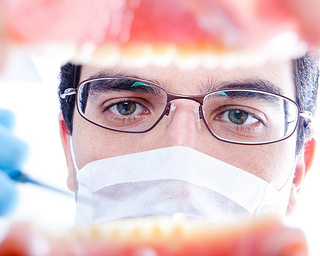Warming Up for Summer Weather
June 5th, 2025

The barbecue’s fired up. T-shirts and shorts are back in style. Sandy beaches and sidewalks are sizzling. Summer’s officially here, and it’s time to get back into hot weather mode. This means getting back into some healthy summer habits.
Be Ready to Hydrate!
Warm weather can lead to dehydration before you know it. And water does more than hydrate—it rinses away food particles after eating or snacking, neutralizes enamel-eroding acids in the mouth, and helps us keep up healthy levels of saliva.
- A reusable water bottle is a summer shopping list must. When you’re out walking, hiking, exercising, or camping, you can’t always be sure you’ll have fresh water available. Fill your water bottle before you leave home—you’ll help yourself stay hydrated, save money, and protect the environment, too!
- Go light on the sports drinks and sodas when planning your summer menus. They’re often filled with sugars and acids—two very unhealthy ingredients for your teeth.
Restock Your Sunscreen
Sunscreen helps protect skin of all shades and all ages. Exposure to ultraviolet rays is known to cause skin cancer and premature aging. Lip tissue is thin and delicate, especially at risk from the sun’s damaging UV rays.
- Check your sunscreen for its expiration date. Protective sunscreens and lip balms lose effectiveness once that date has passed.
- Some sunscreens are designed for use on lips. If yours isn’t, look for a protective lip balm. All of your sunscreens and balms should have an SPF (Sun Protection Factor) of 30 or higher.
- Bring your sunscreen and balm with you when you’re out and about, and reapply every two hours, or sooner if you’re eating, drinking, or getting wet.
Prep for Summer Adventures
If you’re travelling this summer, make sure the right dental supplies are part of your gear. A travel size toothbrush and toothpaste, a well-ventilated toothbrush case, dental floss, and your dentist’s emergency contact information are basic necessities. Once you have the basics, you can tailor your kit to your summer plans:
- Flying? Make sure every liquid, gel, or aerosol you’ll need is the proper size for carry-on flight rules, 3.4 oz (100 ml) or less. Toothpaste and mouthwash are included in these categories, so look for travel sizes in your favorites.
- Going overseas? Don’t forget plug adaptors or voltage converters if needed for your electric toothbrush.
- Camping? An emergency kit with cotton rolls, over-the counter pain relief, oral pain relief gel, dental wax (for damaged braces or a broken tooth), and even temporary fillings and a tooth preservation kit can be crucial in case of unexpected dental injuries.
Make Sure Dental Care Is on Your Summer Calendar
Laid-back summer days are the best, but laid-back dental care really isn’t! Follow your healthy dental routine even during the lazy days of summer.
- Keep up with your brushing and flossing—brush two minutes twice each day with a fluoride toothpaste, and floss at least once a day.
- If you’re planning a trip, don’t ignore warning signs. If you have tooth pain or sensitivity, see your dentist to treat any problems before you’re cruising at 30,000 feet or enjoying a remote campout miles from anywhere.
- Make sure you keep up with your scheduled exams and cleanings. That’s the best way to ensure year-round dental health!
Whether you’re basking in the warm outdoor weather, relaxing in the shade with a cool drink and a good book, on the road to adventure, or wherever your summer plans take you, we hope these easy tips will help you create a summer filled with bright, healthy smiles.





